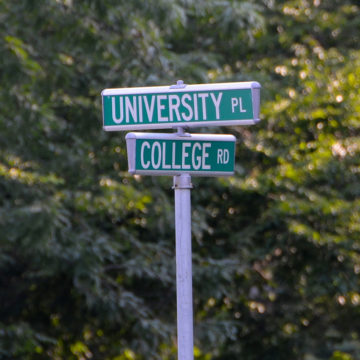Dear Liberal Arts Major:
A well-known publishing executive once told me: “Back when I graduated from Harvard, if you were smart, you went into publishing or academia. If you fell in the middle, you went into banking or business.” Perhaps that sentiment was a bit biased, but there is some underlying truth to the fact that it was once possible for bright people to pursue liberal arts and get a job that directly relates to their education. At some point since 1987–the year in which he graduated from college and I was born–the situation had reversed.
 Now, people dismiss liberal arts majors as limp-wristed, clueless pansies with no job prospects, not intellectuals and thinkers of yore. The brightest students are advised to stay well away from liberal arts. Pundits intone that American students lag in competitiveness because they don’t study math, science, and engineering like they do in other countries. Some universities charge lower tuition for science and engineering degrees, even though they cost more. If you choose science, you might win $100,000 from Paypal billionaire Peter Thiel, to drop out of college and start your own business. Or, if you are smart enough to study engineering at Harvard, you could stay in school for now and get the funding after graduation. (Lucky you). A summer intern at Facebook makes $6,000 a month. A publishing intern makes…hmm let me do the math…$0. And if you survive a summer of living in a window-less closet with no AC, eating nothing but PB & J everyday, you won’t have a job lined up after graduating. Worse, you might even have to do a few more internships after college while holding down 2-3 other paying jobs.
Now, people dismiss liberal arts majors as limp-wristed, clueless pansies with no job prospects, not intellectuals and thinkers of yore. The brightest students are advised to stay well away from liberal arts. Pundits intone that American students lag in competitiveness because they don’t study math, science, and engineering like they do in other countries. Some universities charge lower tuition for science and engineering degrees, even though they cost more. If you choose science, you might win $100,000 from Paypal billionaire Peter Thiel, to drop out of college and start your own business. Or, if you are smart enough to study engineering at Harvard, you could stay in school for now and get the funding after graduation. (Lucky you). A summer intern at Facebook makes $6,000 a month. A publishing intern makes…hmm let me do the math…$0. And if you survive a summer of living in a window-less closet with no AC, eating nothing but PB & J everyday, you won’t have a job lined up after graduating. Worse, you might even have to do a few more internships after college while holding down 2-3 other paying jobs.
But if you still choose liberal arts while knowing all this, my heart goes out to you. Take it from someone who did all of the above, we are kindred souls. You are brave or incredibly stubborn (or likely, both) to pursue the path that no pragmatic person would touch with a ten foot pole. But pragmatism isn’t what led you to veganism or anything else that defines you–it was your passion, ability to dream, and love of expression. When you begin to believe that what they say is true–that your education is worthless in the real world–do know that it’s not true. If American students lag compared to Chinese students, it’s not because not enough of us are studying engineering, but because the level of learning across the board has to be improved. Liberal arts majors can’t get a job not because their education is irrelevant, but because our economy is recovering painfully slowly from the Great Recession, which for many of you was right around your graduation.
Liberal arts deals not with what feeds our bodies and makes the world, but what sustains our souls. Without liberal arts, there would be no meaningful discussion of what truly matters in life. But that doesn’t mean that liberal arts is irrelevant outside the ivory tower: An ideal liberal arts education prepares you for professional life in almost any discipline by developing critical thinking and communication skills. Whether you study Philosophy, Classics, Anthropology, History, or English, these two things are the most important skills you will gain from school–and the ones you will need to use everyday in the workforce, whether you choose more traditional fields or those that didn’t exist 10 years ago, like social media marketing. Don’t let anyone tell you what you’re studying is irrelevant, because whatever you do, you’ll be writing lots and lots of emails, and writing is more important than ever. Just make sure you pursue your education with vigor and passion, and not as a way to pass 4 years of your life. But if you learn as much as you can possibly absorb, and can speak and write like a thinker on any topic, you will be adaptable to any field. And your broad knowledge of the past will translate in ways you don’t even expect, because the past is the best way to know our future. If you’re still not convinced, let me assure you that most esoteric parts of my education–from Montaigne to Linear B, a prototypical Greek alphabet from the Bronze Age–have made cameo appearances in my professional life. Just make sure you choose what you’re really passionate about, and remember: Absolutely nothing is wasted if you learn it well.
Juhea Kim graduated from Princeton University in 2009 with a degree in Art and Archaeology and a Certificate in French.
More in Op-Ed: Silent Spring – The Tragedy of African Elephants Continues
The Vegan Thing That is Destroying the Planet
Photo: Adam Fagen via Flickr




